Research Article
Teorik Makale
İnceleme makalesi
Issue Reviewers
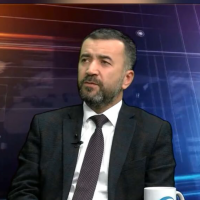




 Web
Web
• Kaşgar'da doğdu. İlk ve Orta öğrenimini Kaşgar-Beşkirem’de (1984-1990), Üniversite öğrenimini Pekin’de Minzu University of China’nın Türkoloji bölümünde (1990-1995), Lisansüstü öğrenimini Hacettepe Üniversitesi, Sosyal Bilimler Enstitüsü Sosyoloji Anabilim Dalında (1997-2003) tamamladı.
• 1995-1997 yıllarında Çin Milliyetler İşleri Bakanlığında Uzman olarak çalıştı. 2003-2014 yılları arasında Merkezi Milliyetler Üniversitesi (Minzu University of China) Etnoloji ve Sosyoloji Fakültesi Sosyoloji Bölümünde Yardımcı Doçent (2004-2006), Doçent (2006-2014) kadrolarında öğretim üyesi olarak çalıştı.
• Ekim 2008-Kasım 2009 Tarihinde Avusturalya University of Southern Queensland (USQ)’da misafir öğretim üyesi,
• Haziran-Eylül 2010 tarihinde Indiana Üniversitesi Merkezi Avrasya Araştırmaları bölümünde kısa dönem öğretim üyesi;
• Ocak 2011- Eylül 2015 tarihleri arasında Niğde Üniversitesi Sosyoloji Bölümünde Yabancı Uyruklu Sözleşmeli öğretim üyesi olarak çalıştı.
• Eylül 2015-Ağustos 2018 tarihleri arasında Ankara Yıldırım Beyazıt Üniversitesi Sosyoloji Bölümünün Profesör kadrosunda,
• Ağustos 2018’den beri Ankara Hacı Bayram Veli Üniversitesi Uluslararası İlişkiler Bölümünde kıdemli profesör olarak görev yapmaktadır.
• Ocak 2024-Ocak 2025 tarihleri arasında Sheffield Üniversitesi (İngiltere) Doğu Asya Araştırmaları Okulunda misafir öğretim üyesi olarak akademik çalışmalarda bulundu.
• Araştırmalarını Sosyal-Kültürel Değişme; Kültür ve Azınlıklar Sosyolojisi, Çin Araştırmaları; Çin-Türk ilişkileri; Azınlık- Çoğunluk İlişkileri ve Doğu Türkistan araştırmaları alanlarında devam ettirmektedir. Son zamanlarda araştırmalarını Çin tarzı asimilasyon ve Çin yayılması, Uygur diasporası üzerine yoğunlaştırmıştır.
• Çince, İngilizce, Türkiye Türkçesi ve Uygur Türkçesi ile yayımlanmış 70’in üzerinde bilimsel makalesi ve 6 adet kitabı bulunmaktadır.
• Çeşitli ülkelerde 30’un üzerinde bilimsel sempozyum, kongrelere tebliğiyle katılmıştır.
• Çin, Türkiye, Avusturalya, ABD ve İtalya’da Çin’deki milliyetler, azınlıkların sosyal sorunlar, Çin Kültürü ile Uygur Türk toplumu ve kültürü üzerine 100’ün üzerinde konferans ve seminerler vermiştir.
• 2013 yılında Niğde Üniversitesinde Kaşgarlı Mahmud Uygur-Çin Araştırmaları Merkezini kurmuş olup bu merkez bünyesinde Avrasya Araştırmaları Yüksek Lisans ve Doktora programı açarak yürütmüştür.
• Doğu Asya Araştırmaları Dergisi (DAAD) imtiyaz sahibi, genel yayın yönetmenidir.
• Çince (mükemmel), İngilizce (çok iyi) gibi yabancı dillerin yanında Uygur-Özbek Türkçeleri başta olmak üzere Doğu Türk şivelerine vakıftır.
1957 yılında Trabzon’da doğdu. 1979 yılında Atatürk Üniversite-si Edebiyat Fakültesi Arap-Fars Dili ve Edebiyatı Bölümü’nden mezun oldu. Aynı bölümde 1980 yılında Fars Dili ve Edebiyatı Anabilim Dalı’nda asistan olarak göreve başladı. 1985 yılın-da doktor, 1990 yılında yardımcı doçent, 1991 yılında doçent ve 1997 yılında profesör unvanlarını aldı. Atatürk Üniversitesi, Selçuk Üniversitesi ve Kırıkkale Üniversitesinde görev yaptı. Kırıkkale Üniversitesi'nde 11 Şubat 2010- 10 Şubat 2014 tarihleri arasında rektör yardımcılığı görevinde bulundu. Ankara'daki Mevlânâ Araştırmaları Derneği'nin başkanlığını 2004 yılından itibaren sürdürmektedir. Fars Dili ve Edebiyatı, Klâsik Türk Edebiyatı, Mevlânâ ve eserleri üzerinde çalışmalar yapmaktadır.

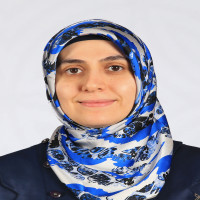
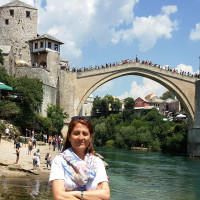
İlk, orta ve lise öğrenimini Zonguldak’ta; lisans eğitimini 1991’de Erciyes Üniversitesi Fen Edebiyat Fakültesi Türk Dili ve Edebiyatı Bölümünde tamamladı. 1997 yılında Ankara Üniversitesi Sosyal Bilimler Enstitüsü Yeni Türk Edebiyatı Anabilim Dalında “Cumhuriyet Döneminde Edebî Eleştiri (1923-1938) başlıklı teziyle yüksek lisansını; 2004 yılında aynı üniversitede “Erhan Bener: Hayatı, Sanatı, Eserleri” başlıklı teziyle doktorasını tamamladı. 1998 yılında Cumhuriyet Döneminde Edebî Eleştiri (1923-1938) başlıklı teziyle Kültür Bakanlığı Cumhuriyetimizin 75. Yılı ve Ulu Önderimiz Atatürk’ün Ölümünün 60. Yılı Eser Yarışması İnceleme-Eleştiri Dalında Büyük Ödülü kazandı. Türkoloji Projesi kapsamında, Bosna-Hersek Zenica Üniversitesi Felsefe Fakültesi Türkoloji Bölümünde bir yıl, Türk dili ve Türk edebiyatı dersleri verdi. Cumhuriyet Döneminde Edebî Eleştiri (1923-1938), Asi ve Duygulu Bir Ses: Hayriye Melek Hunç (2012), Hıtay Sefaretnamesi (2013), Gülten Akın’ın Şiiri (2015) ve Çocukluk ve Roman (2022) adlı kitapları bulunan Prof. Dr. Betül Mutlu’nun eleştiri, şiir, roman, çocuk edebiyatı ve kadın sorunları üzerine ulusal/uluslararası bildirileri, kitap bölümleri ve makaleleri yayımlanmıştır. 1991 yılından 2006 yılına kadar Milli Eğitim Bakanlığına bağlı kurumlarda görev yapan Betül Mutlu, 2006 yılından beri Zonguldak Bülent Ecevit Üniversitesi’nde öğretim üyesi olarak çalışmaktadır.
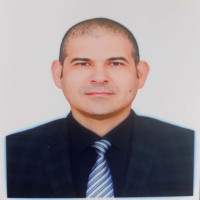
BACKGROUND
Born in 1984 in Izmir, Cihan Çakmak completed his primary and higher education in Izmir. He completed his undergraduate and graduate studies at Ege University, Faculty of Literature, Department of Turkish Language and Literature. In 2010, he became a science specialist by defending his master's thesis titled Turkmen Turkish Subject Analyzed Vocabulary, which he prepared in Ege University Institute of Social Sciences, New Turkish Language Department. Then, in 2014, he defended his master's thesis titled Fatih Kerimi's Hayal Mi? Hakikat Mi? and Andan Bundan completed his doctoral studies by defending his thesis titled Language and Style Analysis on his works.
He started his academic life as a Research Assistant in Çankırı Karatekin University, Faculty of Literature, Department of Turkish Language and Literature between 2009-2013. Then, he worked as an instructor and Assistant Director at Gaziosmanpaşa University TÖMER between 2014-2015. In 2015, he started to work as an Assistant Professor in Manisa Celal Bayar University Faculty of Education, Department of Turkish Education. In the same university, he also held administrative positions such as Vice Dean (2015-2019), Head of Department and Head of Department. In 2018, Cihan ÇAKMAK, who received his Associate Professorship in North-West Kipchak Turkish Dialects and Literatures, is still working as a faculty member in the same institution.
Assoc. Prof. Dr. Cihan Çakmak has 35 articles published in National and International Journals, 6 books and book chapters and 20 papers presented in International Symposiums.
Assoc. Prof. Dr. Cihan Çakmak's studies mainly focus on Tatar Turkish and Literature, Vocabulary, Pseudonyms in Kazan Tatar Turkish and Teaching Turkish to Foreigners.
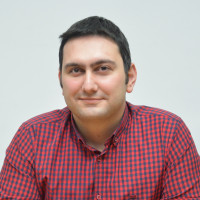

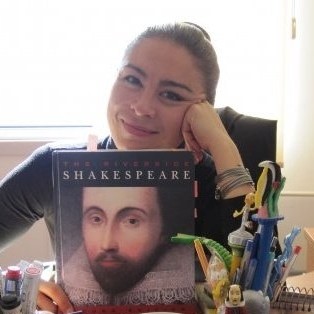







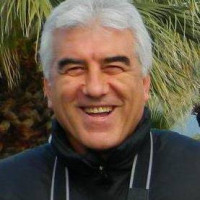






 Web
Web
Hacı İbrahim Delice; 01.04.1964 Sivas'ın Yıldızeli ilçesine bağlı eski adıyla Kızıllı yeni adıyla Cumhuriyet köyü doğumlu. İlk öğrenimini köyü Kızıllı Köyü İlkokulu'nda, orta ve tahsilini de 1979 yılında Sivas'da İmam Hatip Lisesi'nde okudu.
1984 yılı Selçuk Üniversitesi Fen-Edebiyat Fakültesi Türk Dili ve Edebiyatı Bölümü mezunu. 1985 - 1989 yılları arası Konya'da Akşehir Reis Lisesi'nde, 1990 yılında da Sivas İmam-Hatip Lisesi'nde Türk Dili ve Edebiyatı Öğretmenliği yaptı.
1990'da Cumhuriyet Üniversitesi Fen-Edebiyat Fakültesi Türk Dili ve Edebiyatı Bölümü'nde araştırma görevlisi olarak göreve başladı. 1996 yılında Cumhuriyet Üniversitesi Fen-Edebiyat Fakültesi Türk Dili ve Edebiyatı Bölümü Yeni Türk Dili Anabilim Dalı'nda yardımcı doçent; 2004 yılında doçent; 2009 yılında da profesör oldu.
1992 yılında yüksek lisansını Prof. Dr. Bilal Yücel'in danışmanlığında Cumhuriyet Üniversitesi Sosyal Bilimler Enstitüsü'nde, 1996 yılında da doktorasını Prof. Dr. Ahmet Buran'ın danışmanlığında Fırat Üniversitesi Sosyal Bilimler Enstitüsü'nde tamamladı.
1991 - 1993 tarihleri arası Cumhuriyet Üniversitesi Rektörlük Türk Dili Bölümü Türk Dili Anabilim Dalı'nda, 1993 - 1995 tarihleri arası da Fırat Üniversitesi İnsani ve Sosyal Bilimler Fakültesi Türk Dili ve Edebiyatı Bölümü Yeni Türk Dili Anabilim Dalı'nda Öğretim Üyesi olarak görev yaptı.
2009 - 2010 yılları arası Cumhuriyet Üniversitesi Edebiyat Fakültesi Çağdaş Türk Lehçeleri Bölüm Başkanlığı, yine aynı fakültenin Edebiyat Bölümü Oğuz Grubu Şiveleri Anabilim Dalı Öğretim Üyeliği, yine 2011 - 2012 yılları arası Tunceli Rektör Yardımcılığı, 2012 - 2014 yılları arası da aynı üniversitenin İletişim Fakültesi Dekanlığı görevlerinde bulundu.
2014'de 2547 sayılı kanunun 40/b maddesi uyarınca Bartın Üniversitesi'ne
görevlendirilen Prof. Dr. Hacı İbrahim Delice, 18.08.2017 tarihinde Yüksek Öğretim Kurulu kararıyla yeniden Bartın Üniversitesi Edebiyat Fakültesi Dekanlığına vekaleten atanmıştır.
Orta seviyede Farsça, başlangıç seviyesinde İngilizce ve Arapça bilen Prof. Dr. Hacı İbrahim Delice, evli ve üç çocuk babasıdır.
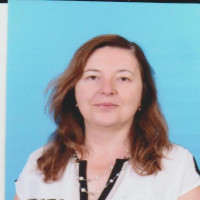
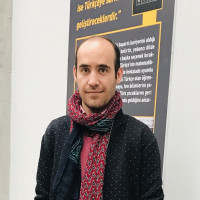

Prof. Dr. Mehmet Ali Çelikel graduated from Hacettepe University, Department of English Linguistics in 1993. He completed his MA in English Language and Literature at the University of Hertfordshire in England in 1997. He got his PhD with a thesis entitled “The Post-Colonial Condition: The Fiction of Rushdie, Kureishi and Roy” at Liverpool University in England in 2001. He has published two academic books in Turkish on post-colonial novel, entitled as Sömürgecilik Sonrası İngiliz Romanında Kültür ve Kimlik [Culture and Identity in Postcolonial English Novel] in 2011 and Çağdaş İngiliz Romanında Küreselleşme, Göç ve Kültür [Globalisation, Migration and Culture in Contemporary British Novel]. He currently works as a Professor at the Department of English Language and Literature, Marmara University, Turkey. mehmet.celikel@marmara.edu.tr
https://orcid.org/0000-0003-0402-9858


 Web
Web

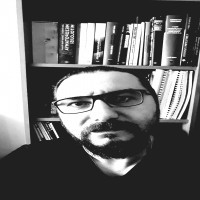
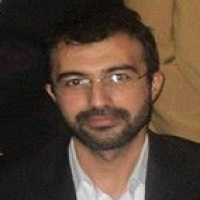

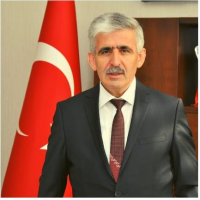
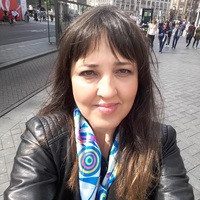

Prof.Dr. Nuri ŞİMŞEKLER
(Selçuk Üniversitesi)
1964 yılında Konya’da doğdu. İlk, Orta ve Lise tahsilini (Konya-Meram Endüstri Meslek Lisesi Motor Bölümü) burada yaptı.
1987 yılında Ankara Üniversitesi Dil ve Tarih Coğrafya Fakültesi’nde Fars Dili ve Edebiyatı Bölümünde Lisans eğitimini tamamladı.
Ağustos 1988 / Kasım 1989 yılları arasında Ankara’da Genelkurmay Başkanlığı’na bağlı olarak “Farsça Mütercim-Tercüman” sıfatıyla Yedek Subaylık görevini tamamladı.
1 Mart 1990 tarihinde Selçuk Üniversitesi Edebiyat Fakültesi Fars Dili ve Edebiyatı Bölümünde “Araştırma Görevlisi” olarak akademik hayatına başladı.
Prof.Dr. Adnan Karaismailoğlu Danışmanlığında Mesnevî ve Mevlevilik konularında hazırladığı tezler ile;
1992 yılında Selçuk Üniversitesi’nde Yüksek Lisans,
1996 yılında da aynı üniversitede Doktora çalışmasını tamamladı.
2012 yılında Eski Türk edebiyatı Bilim Dalında Doçentliğini aldı, 5 yıllık (2016-2021) diplomatik görevinin ardından 2023 yılında da Fars Dili ve Edebiyatı alanında Profesörlüğe atandı.
1990-2017 yılları arası Selçuk Üniversitesi Edebiyat Fakültesi Fars Dili ve Edebiyatı Bölümünde Öğretim Üyesi olarak görev yaptı.
Şimşekler bu dönemde;
2005 yılında aynı üniversite bünyesinde “Mevlâna Uygulama ve Araştırma Merkezi” kuruluşu,
2010 yılında da bu Merkezin “Mevlâna Araştırmaları Enstitüsü”ne dönüştürülmesi çalışmalarını yürüttü,
2005-2015 yılları arası bu iki kurumun Kurucu Müdürlüğü görevini üstlendi.
2016-2017 yılları arası T.C. Tahran Büyükelçiliği’nde;
2017 yılından 2021 yılına kadar da T.C. Bişkek Büyükelçiliği nezdinde İran ve Kırgızistan’da Kültür ve Tanıtma Müşavirliği görevlerinde bulundu; aynı zamanda Kazakistan, Moğolistan, Azerbaycan ve Tacikistan Müşavirliği görevlerini de yerine getirdi. Şimşekler, bu görevleri sırasında Uluslararası Türk Kültürü Teşkilatı (TÜRKSOY), Türk Dili Konuşan Ülkeler İşbirliği Konseyi (Türk Keneşi-Türk Konseyi) Türk Dili Konuşan Ülkeler Parlamenter Asamblesi (TÜRKPA), İslam Tarih, Sanat ve Kültür Araştırma Merkezi (IRCICA) gibi çok uluslu; Yunus Emre Enstitüsü, Türk İşbirliği ve Koordinasyon Ajansı (TİKA) gibi ülkemiz kurumları ile kültür, edebiyat, turizm, eğitim gibi alanlarda işbirliği, bilgi desteği, danışmanlık gibi çalışma ve görevlerde bulunmuştur.
Akademik çalışmalarının büyük bir bölümünü Mevlâna, eserleri, fikirleri ve Mevlevî Kültürü üzerinde yapan Şimşekler’in bu konularla ilgili 10 kitabı; bilimsel ve popüler dergilerde yayınlanmış 50’yi aşkın makalesi; ülkemizin birçok şehri başta olmak üzere;
ABD (Bard College, New York Metropolitan Müzesi, Yale Üniversitesi, Amherst College ve Washington National Cathedral), İran (4 defa Tahran, Meşhed, 2 defa Urumiye, 2 defa Tebriz ve Hoy), Azerbaycan (3 kere Bakü), Afganistan (Kabil), KKTC, İsviçre, Kolombiya, Tacikistan ve Kırgızistan’da sunduğu yurt içi ve dışı 30 bildirisi-konferansı; 4’ü ortak çalışma olmak üzere Konya, İstanbul (Ayasofya Müzesi-Camii) İran Urumiye (Urumiye Üniversitesi) ve Kırgızistan’da (Manas Üniversitesi) 6 Sergisi ve yurt içinde verdiği 50’den fazla Konferansı bulunmaktadır.
Şimşekler, Mevlevi Kültürü, Müziği ve Sema’nın Somut Olmayan Kültürel Miras Listesi’ne eklenmesi ve Doğum Yıldönümü’nün 800. Yılı nedeni ile 2007 Yılı’nın UNESCO tarafından “Mevlâna’yı Anma Yılı” ilan edilmesi çalışmalarına Uluslararası Mevlana Vakfı Mütevellisi olarak katkı sağladı. (2005-2007) Ayrıca, Mevlevi Kültürü, Müziği ve Sema’nın Somut Olmayan Kültürel Miras Listesi’ne eklenmesi sonrasında Kültür Bakanlığı nezdinde oluşturulan “Bilim Heyeti”ne Üye olarak seçildi ve bilimsel-istişari toplantılara katıldı, yurt içi ve dışı etkinliklerde yer aldı. 2021 yılında da “Mevlâna Külliyatının Dünya Belleği Uluslararası Kütüğüne Kaydı” çalışmalarında yer almak üzere UNESCO Türkiye Milli Komisyonu tarafından “Alt Çalışma Grubu Üyeliği”ne seçilmiş olup bu konudaki çalışmalara katkı sunmaktadır.
Şimşekler, kurumsal anlamda 10’dan fazla ulusal ve uluslararası Kongre, Sempozyum, Panel, Sergi, Akademik Kurslar-Seminerler düzenlemiş, belgesel-film danışmanlıkları yapmıştır.
Diplomatik görevlerinin ardından akademik hayatına devam eden ve halen Selçuk Üniversitesi Edebiyat Fakültesi öğretim üyesi olarak görev yapan Şimşekler akademik ve diplomatik çalışmalarından ve kültür ve edebiyata yaptığı katkılardan dolayı iki ödül ve birçok plaket almıştır. Evli ve 4 çocuk babasıdır.
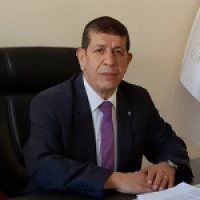
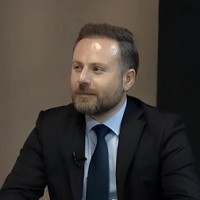






 Web
Web

Prof. Dr. Oktay Yivli Milas’ta doğdu. İlk ve orta öğrenimini aynı şehirde tamamladı. İstanbul Üniversitesi Edebiyat Fakültesi Türk Dili ve Edebiyatı Bölümünü bitirerek Millî Savunma ve Millî Eğitim Bakanlıklarına bağlı çeşitli okullarda edebiyat öğretmenliği yaptı. 1996’dan sonra yayınevi editörlüğü ve eğitim yazarlığı üzerinde yoğunlaştı. Eskişehir Osmangazi Üniversitesinde misafir öğretim görevlisi olarak (2002-2008), Ürdün Üniversitesi Yabancı Diller Fakültesi Türk Dili Bölümünde öğretim üyesi olarak çalıştı (2009-2012). 2011’de Nevşehir Hacı Bektaş Veli Üniversitesine atandı. 2015’ten bu yana Muğla Sıtkı Koçman Üniversitesi Edebiyat Fakültesi Türk Dili ve Edebiyatı Bölümünde öğretim üyesi olarak görev yapmaktadır.
Ahmet Muhip Dıranas’ın Şiiri teziyle yüksek lisansını, Alev Alatlı’nın Romancılığı teziyle doktorasını tamamladı. Beşparmak, Çağdaş Türk Dili, Çağrı, Dil, Edebiyat Güncesi, E, Erdem, Folklor/Edebiyat, Hayat, Hece, Hece Öykü, İlkyaz, Millî Eğitim, Millî Kültür, Şiir Defteri, Şiir Ülkesi, Şiiri Özlüyorum, Turkish Studies, Türk Dili, Türük, Varlık dergilerinde şiir, deneme ve makaleleri yayımlandı. Genç Esintiler (1981), İlkyaz (1992-1994) ve Edebiyat Güncesi (1995-2000) adlı edebiyat dergilerinin kuruculuğunu ve yayın yönetmenliğini yaptı. Hâlen akademik bir dergi olan Söylem Filoloji Dergisi’nin (2016®) editörlüğünü yürütmektedir.
Bilimsel kitapları: Metin Eloğlu’nun Şiiri (2011, 2013), Alev Alatlı’nın Romancılığı (2013), Cemil Süleyman’ın Öyküleri (2013; ikinci basım Kısa Öyküde Yöntem adıyla, 2015). Öykü Nasıl Okunur: Modern Öykü ve Yöntem (2019). Modern Türk Edebiyatı (editör, 2017), Batı Edebiyatında Akımlar (editör, 2018). Şiirleri: Bir Beyaz Düş (1991), Yaşamak Eski Bir Alışkanlıktır (1993), Gece ve Ölüm (1995), Geceleyin Şehirler Birbirine Benzer (1998), En Gerçek Yanıdır Bir Rüyanın Aşk (2007), Gece Uzuyor Ellerinle Yüzümde (2018). Ders kitapları: Edebî Metinler 1-2-3 (1995-2000), Türk Edebiyatı Tarihi 1-2 (1996-2000).
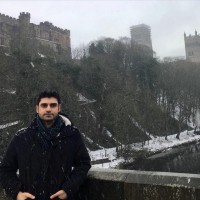




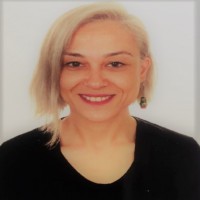
2008 yılında Ankara Üniversitesi Dil ve Tarih-Coğrafya Fakültesi Antropoloji Bölümü'nden mezun olan Dr. Öğr. Üyesi Sibel Önal, 2017 yılında Ankara Üniversitesi Sosyal Bilimler Enstitüsü Fizik Antropoloji programında doktorasını tamamladı. 2014 yılından beri mezun olduğu bölümde çalışmaktadır. Ergonomi, kent ergonomisi, beden algısı ve ekoloji üzerine dersler vererek çalışmalarını sürdürmektedir.
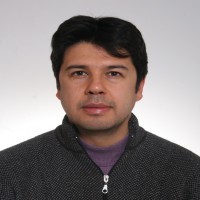

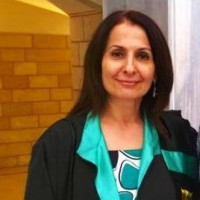
Türkan Olcay is a Doctor of Philological Sciences (2002) and Full Professor (2012) at the Department of Russian Language and Literature at Istanbul University where she delivers courses on 19th-Century Russian Literature since 1994 and mentors master’s and doctoral students. She has also taught as a visiting professor at Anadolu University (Türkiye), L.N. Gumilyov Eurasian National University (Kazakhstan), Sofia University “St. Kliment Ohridski” (Bulgaria), Masaryk University (Czech Republic) and Jagiellonian University (Poland).
Prof. Dr. Olcay’s fields of specialization are 19th-Century Russian literature and Turkish-Russian cultural and literary relations, as well as the life and socio-cultural activities of the Russian immigrants (known as "White Russians") in Istanbul in the 1920’s. She has participated in many conferences, has authored five books and has written numerous publications including over hundred articles and book chapters. She is the editor-in-chief of the collective works “Russkaya belaya emigratsiya v Turtsii vek spustya 1919-2019” [Russian White Immigration in Turkey: a Century Later 1919-2019”], Moscow: A. Solzhenitsyn House of Russia Abroad, 2019 (in Russian) and “Beyaz Rusların Gelibolu Gurbetinin 100. Yıldönümü” [The 100th Anniversary of the White Russians’ Exile in Gallipoli], Chanakkale: COMU, 2020 (in Turkish).
Prof. Dr. Olcay has been carring out institutional and departamental administrative duties, serving on the editorial boards of leading international journals and is a member of the Expert Council of the Center for Turkish-Russian Cooperation in the field of research and practice TURUSIA at Chanakkale 18 March University.
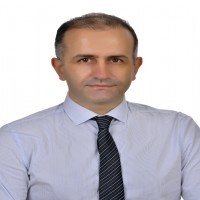
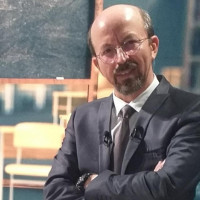
Yaşar ÖZÜÇETİN
1967 yılında Konya’da doğdu. 1987 yılında Gazi Üniversitesi Gazi Eğitim Fakültesi Sosyal Bilgiler Eğitimi Bölümü Tarih Anabilim Dalından mezun oldu. 1994 yılında Gazi Üniversitesi, Sosyal Bilimler Enstitüsünde “20. Yüzyıl Başlarında Türkçülük Hareketi (1910-1923)” üzerine yaptığı tez ile yüksek lisansını, aynı enstitüde “Mehmet Şemsettin Günaltay’ın Hayatı, İlmî, idarî, Siyasî Faaliyetleri” adlı çalışması ile doktorasını tamamladı. Milli Eğitim Banklığında öğretmen ve idareci olarak görevlerde bulundu. 1998 yılında KTÜ Giresun Eğitim Fakültesinde, 2000 yılında KTÜ Giresun Fen Edebiyat Fakültesinde, 2002 yılında GÜ Kırşehir Eğitim Fakültesinde, 2003 yılından itibaren de GÜ Kırşehir Fen Edebiyat Fakültesi Tarih Bölümünde öğretim üyesi olarak görev yaptı. 2010 yılında Atatürk İnkılapları ve Türkiye Cumhuriyeti Tarihi Bilim Alanında doçent, 2015 yılında da profesör oldu. Çeşitli ulusal ve uluslar arası dergilerde makaleleri yayımlandı. Kitapları; Çok Partili Hayata Geçiş Sürecinde Kırşehir, Berikan Yayınevi, Ankara (2009), Ahi Evran Üniversitesi Kırşehir Eğitim Fakültesi Dergisi (KEFAD) Dizini, (Cilt 1-9), http://kefad.ahievran.edu.tr (16.11.2009), Kuva-yı Milliye ve Milli Mücadelede Kırşehir, Yayın No: 33, Kırşehir (2009), (Editör), KIRŞEHİR (Siyasî Tarihi ve Kırşehir Tarihî Bibliyografyası), ISBN:978-605-149-514-9 Kırşehir Valiliği İl Kültür ve Turizm Müdürlüğü, Gökçe Ofset Matbaacılık, Ankara /2014), Kurtuluş ve Kuruluşta Milletvekili Gözüyle Gazi Mustafa Kemal Paşa (1920-1923), ISBN: 978-605-9912-41-9, Berikan Yayınevi, Ankara (2015), (İkinci baskı 2020). Kırşehir Ahi Evran Üniversitesi Fen Edebiyat Fakültesi Tarih Bölümü Başkanlığı (2010-2018), Kırşehir Ahi Evran Üniversitesi Sosyal Bilimler Enstitüsü Müdürlüğü görevini yürüten Prof. Dr Yaşar Özüçetin’in yabancı dili Fransızca olup, evli ve iki çocuk babasıdır.

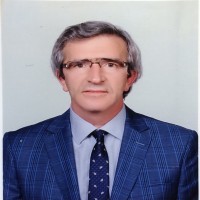
09/08/1963 Adapazarı doğumludur. Orta öğretimini Adapazarı’nda tamamladı. 1983-1984 eğitim-öğretim döneminde Ankara Üniversitesi Dil ve Tarih-Coğrafya Fakültesi Doğu Dilleri ve Edebiyatları Bölümü Fars Dili ve Edebiyatı Anabilim Dalı’nda filoloji eğitimine başladı ve adı geçen bölümden 1987 yılında mezun oldu. Ankara Üniversitesi Sosyal Bilimler Enstitüsü programına bağlı olarak Mayıs 1990 tarihinde Yüksek Lisansını tamamladı. Mart 1989-Ekim 1990 tarihleri arasında Ankara Üniversitesi Türkçe Öğretim Merkezi (TÖMER)’nde sözleşmeli okutman olarak görev yaptı. Ekim 1990’da aynı enstitüde Doktora programına katıldı. 31 Aralık 1991 tarihinde Selçuk Üniversitesi Fen-Edebiyat Fakültesi Doğu Dilleri ve Edebiyatları Fars Dili ve Edebiyatı Anabilim Dalı’na araştırma görevlisi olarak atandı. 20 Şubat 1997’de Edebiyat Doktoru unvanını aldı. 12.04.1999 tarihinde Selçuk Üniversitesi Fen-Edebiyat Fakültesi Doğu Dilleri ve Edebiyatları Bölümü Fars Dili ve Edebiyatı Anabilim Dalı yardımcı doçent kadrosuna atandı. 18.09.2006 tarihinde Fars Dili ve Edebiyatı Anabilim Dalı başkanlığına atandı. 14.12.2007 tarihinde Doçent unvanını aldı. 26.08.2010 tarihinde Kırıkkale Üniversitesi Fen-Edebiyat Fakültesi Doğu Dilleri ve Edebiyatları Bölümü Fars Dili ve Edebiyatı Anabilim Dalı Doçentlik kadrosuna, 05.10.2010 tarihinde Bölüm Başkanlığı görevine; 08.03.2013 tarihinde aynı üniversitede profesörlük kadrosuna atandı. 11.02.2014-05.10.2014 tarihleri arasında Doğu Dilleri ve Edebiyatları Bölüm başkanlığını; 14.02.2014 tarihinden itibaren Doğu Dilleri ve Edebiyatları Bölüm Başkan Yardımcılığı ve Mütercim Tercümanlık (Farsça) Anabilim Dalı başkanlığı görevlerini yürüttü. 20.02.2019 tarihinde Yıldırım Beyazıt Üniversitesi İnsan ve Toplum Bilimleri Fakültesi Doğu Dilleri ve Edebiyatları Bölümü Fars Dili ve Edebiyatı Anabilim Dalı Prof. kadrosuna atandı. 12.06.2019-02.11.2023 arasında Doğu Dilleri ve Edebiyatları Bölüm başkanlığını, 02.03.2019-31.07.2024 tarihleri arasında AYBÜ İnsan ve Toplum Bilimleri Fakültesi Doğu Dilleri ve Edebiyatları Bölümü Fars Dili ve Edebiyatı Anabilim Dalı başkanlığını yürütmüştür.

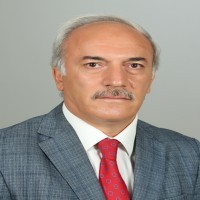
1964 Malatya'da doğdum. İlk, Orta ve Lise tahsilimi Malatya'da, Üniversiteyi Kayseri Erciyes Üniversitesi İlahiyat Fak. 1985 yılında tamamladım. MEB de öğretmen olarak çalıştım. 1994 yılında Felsefe ve Din bilimlerinde (Dinler Tarihi) Yüksek Lisansımı, 1997 yılında Doktoramı tamamladım. 2004 yılında doçent, 2010 yılında da Dinler tarihi alanında Profesör olarak atandım.
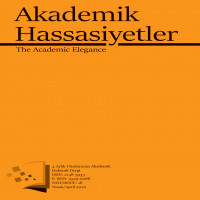
Aim & Scope
Ankara University Journal of the Faculty of Languages and History-Geography (DTCF Journal) is an international, scholarly, and blind-reviewed journal published by Ankara University. The journal aims to increase and extend scholarly studies which will contribute to the scientific development in the fields of social sciences and humanities.
The Journal includes articles in all fields of social sciences, particularly language, culture, literature, history, geography, philosophy, psychology and sociology.
Authors of manuscripts submitted to the journal must have an academic title, or must be a PhD student. Doctoral students should send dissertation-related articles in collaboration with their advisors. If the subject material of the article is unrelated to their dissertation, then the submitted work should be co-authored with a faculty member. Articles extracted from Master's thesis are not accepted for publication in the journal.
Author Guidelines
AUTHOR GUIDELINES OF THE ANKARA UNIVERSITY JOURNAL OF THE FACULTY OF LANGUAGES AND HISTORY-GEOGRAPHY
Ethical Principles and Publication Policy
DECLARATION OF PUBLICATION ETHICS
Please e-mail and notify us through dtcfdergisi@ankara.edu.tr once you come across unethical situations.
Price Policy
Ankara University Journal of the Faculty of Languages and History-Geography (DTCF Journal) does not charge any fees for article submission or article processing.
Sponsorship and advertisements are not allowed in line with the publication policies of the journal.
Ankara University Journal of the Faculty of Languages and History-Geography is licensed under Creative Commons Attribution 4.0 International (CC BY 4.0).
